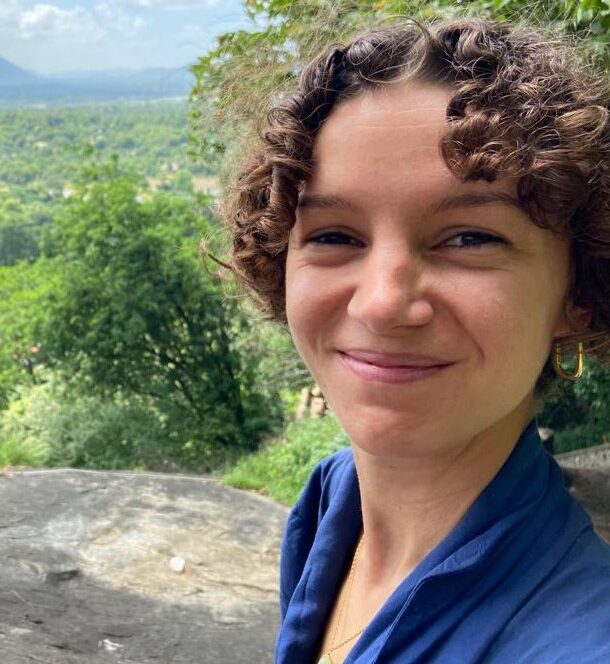
A Surprising Path to Bioinformatics and Women’s Health
Jessica Shields’ scientific path has taken some surprising twists and turns. After working in plant biology as an Amgen Scholar at ETH Zürich in 2017, she decided she wanted to work on the vaginal microbiome. But to do that, she first had to make an unlikely disciplinary pit stop: bioinformatics. Now working as a research assistant, developing software in an epigenetics lab, Shields still has an eye toward a PhD working on the vaginal microbiome.
“The whole path has sort of been a surprise,” Shields says. “My brother works in software, and when I thought of it, I always found it far removed from my interests and hard to imagine what it would even be like to write software programs. But actually, it’s just like math and problem solving, and it’s fun.”
Shields is currently working at the University of Exeter in the UK in the lab of Jonathan Mill who does epigenetic research in neuroscience, looking at various neurological disorders such as schizophrenia and Alzherimer’s disease. As part of a research grant, she is developing software that matches specific markers in different places in the genome to particular functions.
When she was an undergraduate student at Leeds University, Shields was pursuing wet lab work, an interest that continued with her Amgen Scholars research. Her scientific interest then began to converge with an interest in the gender health gap, and in particular women’s health. As she researched options for working on the vaginal microbiome, she spoke to a researcher who recommended she first get a master’s degree in bioinformatics.
Shields would then go on to Queen Mary University of London, earning a master’s in bioinformatics. She found that the problem solving involved in programming differed from those in a bioscience lab — discovering that she could more easily move past challenges in programming compared to the types of problems involved in the lab. “I found iterative problem solving a lot more rewarding than some of the issues that arise when you tackle problems within wet lab research,” she explains. “You are creatively coming up with solutions to problems all the time in bioinformatics.”
After Shields completes her current research grant, she plans to pursue a PhD at Queen Mary with her master’s degree supervisor, who is working on a clinical trial to test the use of prophylactic antibiotics throughout pregnancy. “They’re looking at the vaginal, gut, and oral microbiomes of mothers and seeing the effects on the infant,” she says. “So many issues that affect women could be due to the vaginal microbiome, and I want to be at the cutting edge of that research.”
For Shields, the Amgen Scholars program prepared her for working in a lab. “The traditional practicals that you do at your university in no way prepare you for what it’s like to work as a researcher in a real lab,” she says. “And I loved the lab and the people I worked with, especially my supervisor.” She also treasured the time spent living abroad and exploring Switzerland.
The biggest takeaway Shields has from her surprising journey is to always follow your interests. “And try as many things out as you can,” she says, “because I really think that gives you a nice experience as a researcher that also can help you narrow down what you want to do and what you will enjoy.”

